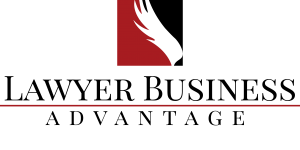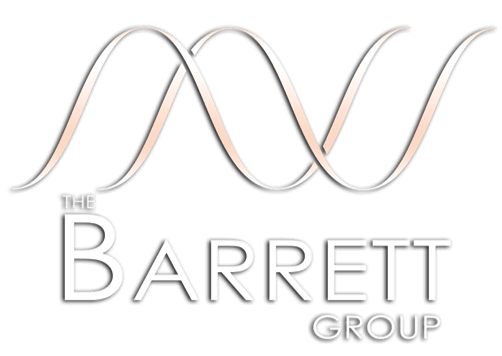Attorneys: Increase Income and Take More Vacation
by Alay Yajnik, Executive Career Coach at The Barrett Group and Law Firm Growth Expert & Founder, Lawyer Business Advantage
Run Your Law Firm Like A Business
Life is not easy for the owners of small law firms. They have to wear many hats: being attorneys, bringing in the business, managing employees, and running the firm. In this video, law firm growth expert Alay Yajnik talks about his passion for helping attorneys increase their income and take more vacation.

About Alay
Alay Yajnik is passionate about making a difference in the lives of his clients. Training and coaching has been integral to Alay’s success in building businesses and developing elite teams. He led a $100+ million global business and built a $5+ million business from the ground up. Whether his clients are large businesses or small ones, Alay combines his wealth of experience with customized training and coaching, enabling his clients to grow as leaders, build their business, and forge elite teams.
Alay holds an M.B.A. from Santa Clara University, and a B.S. in Engineering from U.C. San Diego. Most importantly, Alay has over 17 years of business experience, and his track record of revenue, profitability, and client loyalty includes Fortune 500 firms as well as start-ups. He is certified by FocalPoint International as a Business Coach, and received FocalPoint’s Kaizen Award in 2015.
Related articles:
The Five Options for Unhappy Lawyers
The Legal Industry Is Changing; Your Legal Career Can, Too
Legal Executives Changing Careers
Legal Executives Changing Careers
What Legal Executives Need To Know About Formal And Informal Hiring Conventions
by Dan Resendes, Chief Consulting Officer at The Barrett Group

Legal executives are often perplexed when looking to change careers. “How do I determine and then successfully navigate a change in industries and/or job functions?”
In order to be happy in your next job, it is important to gain clarity regarding your life and what you need to change to move forward. Speaking with a reputable career coach to map your current and targeted situation is highly recommended.
Gaining clarity related to your financial situation, business success, family and relationships as well as health and fitness are the primary elements necessary to achieve happiness. Therefore, once you have identified and determined your success parameters you will be ready to target the job market.
Formal and Informal Hiring Conventions
How you approach the job market will impact the success and time necessary to achieve your goals. There are two main hiring conventions:
- Formal: Dealing with people who are strangers, utilizing cover letters, resumes, and jumping through formal interview and offer negotiation situations.
- Informal: Navigating hiring processes mentioned above by leveraging your social capital and reputation via advocacy, nominations and referrals.
There are four main types of people (listed below) with whom you could possibly interact with during your career change journey:
Formal
1. Don’t expect 3rd Party Recruiters to help you, because they are paid tens of thousands of dollars to hire a perfect fit. They will however, place you in a job where you will be doing the exact same thing you are currently doing, or have done in the recent past. (Dealing with generating billable hours and endless litigation work!)
2. Human Resources Application Screeners have a similar mindset. Their task is typically to provide their boss with the resumes of 3-6 highly qualified professionals who match the list of must-have qualifications, and those who have had the exact same responsibilities, accountabilities and experience.

Informal – “The Good Old Boys and Girls Club”
If you truly want to make a career change, you need to think about your value in the mind of the person who will hire you. NOT the people who are being paid to screen you out.
This means that you need to focus on how you can communicate your value proposition directly to your next boss. If you are thinking of chasing job postings or trying to convince people in-between you and the boss to consider you as a qualified candidate, please rethink that strategy.
3. Your prospects are a whole lot broader with someone you know personally than in the eyes of a total stranger.
4. With someone you know through an advocate, referral partner or an individual who is willing to nominate you for an opportunity, you still have quite a broad range of possibilities as long as that person is not a 3rd party recruiter or HR screener.
People You Know
The people you know, those who hold you in high regard, are typically clients, employees, former employees and business partners. They are also 3rd party legal processionals, vendors, suppliers, consultants, website and IT professionals and individuals in the local community. Also government and administrative officials, related to legal and judicial work, non-profit organizations and individuals with whom you have collaborated with in both the paid and pro bono space.

Think about individuals who truly respect you beyond your professional life. This means neighbors, people with whom you do business outside of work. People with whom you interact with while enjoying life with your family, friends, politicians, faith-based professionals and others. Lastly, don’t leave out your actual family and friends.
The people who make up your social capital include individuals with whom you have spent the last year, 5, 10, 15, 20 or more years of your life.
Now open the lens further, by not prejudging these individuals by where they live and what they do for a living. What they do for a living And where they live will account to approximately 10-15% of the possibilities. The far greater alignment, 85-90%, is related the people your referral partner knows.
It is a simple matter of researching and then reverse-engineering your social capital by either specific individual (or the whole group) and then targeting a geography. You can then easily identify the exact industries, organizations and companies in which you have political clout.
Think of the possibilities:
- The medical malpractice attorney, with private practice experience, lands an In-house Counsel role in a manufacturing company because of an introduction from an advocate.
- A personal injury attorney, lands a job as the Executive Director of a non-profit organization due to a referral from a former client.
- A Partner of a law firm who went into business as CEO of the business, with the friend of a college buddy, after spending a short period of time nurturing her social capital.
- An Attorney, previously tasked with endless litigation and billable hours production, successfully gained the work/life balance so desperately needed by being hired to lead and manage litigation and risk management personnel at a local business.
Speaking with people you know, versus pouring over thousands of job postings. No more calling 3rd party recruiters who fail to understand your transferable skills.
It does not get any better than that!
Career Management Tips for Legal Executives
by Dan Resendes, Chief Consulting Officer at The Barrett Group

When considering changing careers, keep the following tips from The Barrett Group Legal’s career management professionals in mind to prevent some of the most common mistakes legal professionals make:
- If you want to get out of litigation, do not focus on litigation as your main competency, nor billable hours and case work in your value proposition. Instead, highlight your marketing or business development skill sets; how you run operations of your own law firm; your community outreach; all of the charities and relationships you built with municipalities and government representatives.
- When transitioning from a private practice or law firm employer to a corporate in-house or legal services employment, include your competencies in collaboration, leadership, interdepartmental and cross functional communication; as well as best practices and protocol authoring/compliance; customer, community and vendor/3rd party acquisition, outreach, and relationship nurturing.
- Focus on corporate or company challenges versus cases won and case law.
- Highlight operational expertise, accounting and financial wellness, marketing and business development efforts, pro bono, community or charity work.
- Include metrics and quantifiable results – employ workarounds in content authoring if concerned about confidentiality.
- Get used to working with Word documents versus PDFs for your hiring process.

